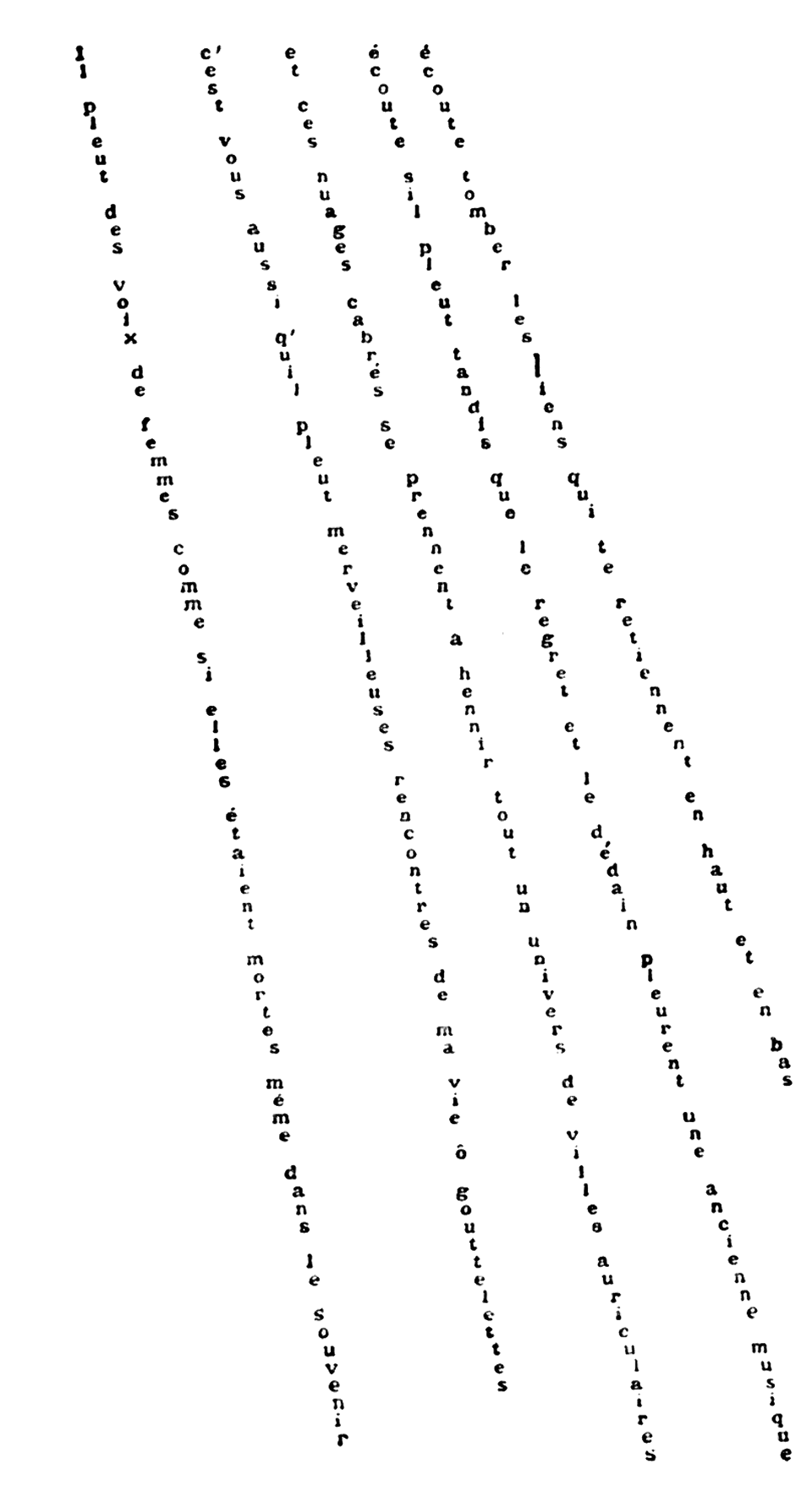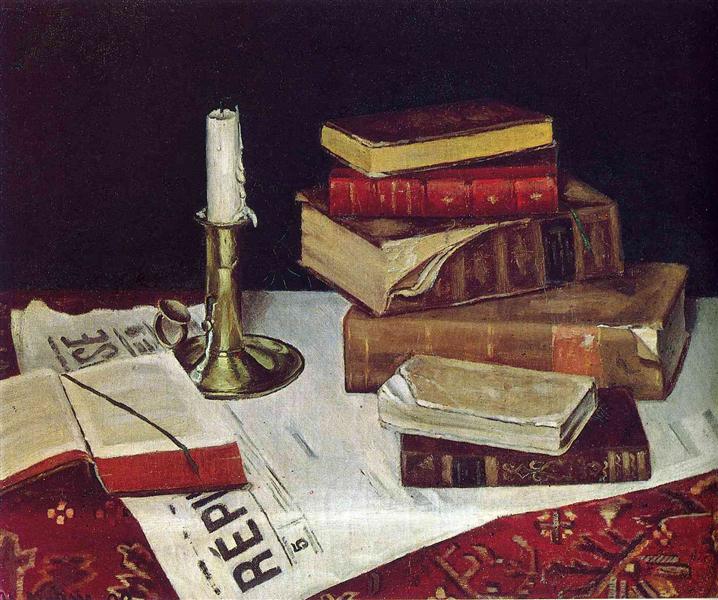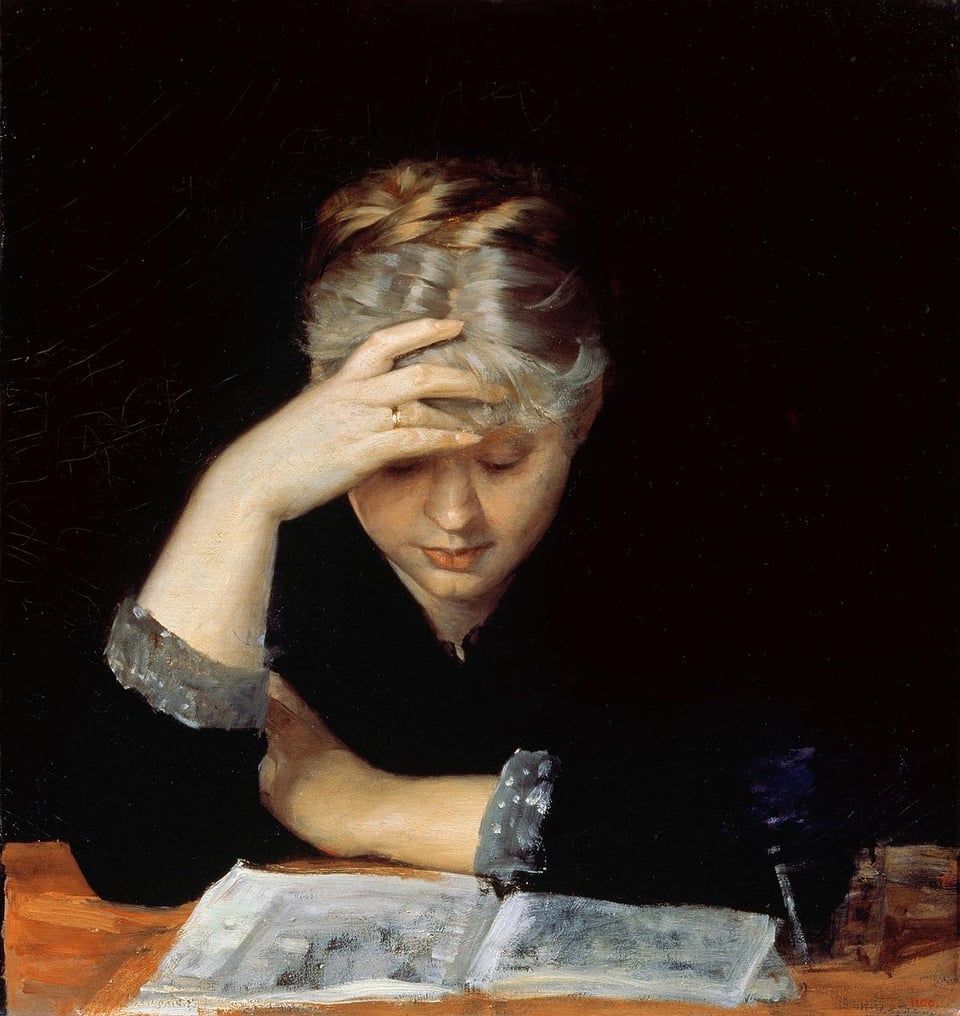On Feeding My Graphomania


I have a half-baked, non-scientific theory about how writing works—not for everyone, of course, just my writing, the thing that’s been a part of me more or less since I could form letters, the graphomaniacal impulse that led me to thrust myself straight into the jaws of the dying beast that was the media industry as soon as I graduated college. It’s not an especially revolutionary theory, but for the most part it works for me, and it has a certain kindergarten-science-project logic to it, something capable of being illustrated in simple ways, like putting a drop of oil in water scattered with pepper, like the foam-over of a homemade baking-soda-and-vinegar volcano.
It’s this: if I read enough, eventually the amount of words I consume will cram my head so full, they will spill out onto the page, like a water-displacement exercise. At some point the accumulated, liquid mass of all those words will stream through my fingers in lyrical, burbling patterns, forming semi-reasonable sentences the way coffee grounds sometimes seem to have a mysterious order to them. The way you can see the face of a god in a piece of toast. The jumbled amalgam of other people’s words filtered into the slurry that’s all mine, thinned into some invisible mental tributary, accumulating commas and clauses like flood debris. The caisson lock of the self-imposing order.
And so during this ten-day vacation, I didn’t go anywhere, but for the first time in a number of years I had no book deadline, column deadline, or any other kind of deadline looming over my head. I had no scattered thoughts about the latest topic to try to scrape up and braid together into the comforting hawser of an argument or essay—I both profoundly enjoyed the feeling of surcease (despite any pause, when you are self-employed, coming inevitably to your own detriment) and mined for other people’s words at my usual frenetic pace. I think I was hoping to build up a surfeit, so that, when it came time again to face the white page, my eternal enemy, I would have a reservoir of words at my disposal and let it careen with unbridled, generous velocity towards you. Even after all these years I’m still afraid of being unable to summon the flood at will, of choking up with silt.

It’s true that a lot has happened during these first, sticky-hot weeks of July. There are, in fact, so many things to sagely comment upon—the French elections, the UK elections, the unending, hideous, train-crash-in-slow-motion epic of our own elections; the Supreme Court’s latest rulings (mifepristone safe for now, democracy rapidly giving way to autocracy, with the nine robed figures presiding over the whole mess like corrupt, theocratic philosopher-kings); plus the usual complement of hurricanes, shootings, and so on. So much drifting past us, some incongruous and shocking, some disconcertingly mundane (Biden is old, say 192 articles in the New York Times, as if it is a new scandal), the way a fridge or a bed or half a roof, when submersed in dirty floodwater, take on new and heartbreaking qualities. The way a car drifting along a sewage-tainted tide suddenly seems so lost and alone, its treads unable to grip, all that horsepower futile now in the green dank water.
(Flooding, generally, is getting worse every year here in New York; people drown in sub-basement apartments. I used to love the summer thunder here—the way the bubble of dense humidity suddenly pops into rain, onto the steaming asphalt and concrete, the way everything feels washed, even the air, into sudden cool peace once the violent spasm of rain stops. But these days it takes longer and longer for the rain to stop and the spasm gets more and more violent. Climate change is a bit like a witch’s curse, or a bargain with the fae gone wrong: everything about a place goes wrong in ways specific to that place: hot places getting hotter, then inhuman; verdant places catching fire; the sensuous humidity of my city turning into flood potential, an extra bolt of menace in the ordinary clouds).
The Sword and the Sandwich is a newsletter about deadly serious extremism and serious sandwiches. Please consider supporting this work with a paid subscription:
I could say so much about each of those things, but this break was what I needed, desperately. I’m no longer itchy-angry about having to write—I have the words back now, reassuring in their weight, the pleasant slosh behind my eyes of a vocabulary all my own. And yet I have little to say. I spent a lot of time reading, and renewed a long-lost enjoyment of schlocky TV (not intentionally bad; so earnest; so clunky; so gently undemanding of my attention) and I read four of Liane Moriarty’s juicy, soapy, delicious novels, with their precision character work and largely unnecessarily complex timelines, their Australian settings that inevitably, on TV, get transposed to California or Florida. I read East of Eden, veered into Michael Chabon (Kavalier & Clay, The Yiddish Policeman’s Union, Gentlemen of the Road), swerved into Ross MacDonald (The Galton Case, The Moving Target, The Drowning Pool), comforted myself with the shining apples of Naomi Novik (Uprooted, Spinning Silver).
I reread things and found joy in the rereading, which is both a visit to a past self and a reopening of a discarded world, a chance to see novelty in the familiar. I read for pleasure, but I also read like I always read, which is as a race against time, a race to displace weight, like it’s a competition and I’m going to win a pizza (there were Read-a-thons when I was a kid and I always won), slightly desperately, feverishly, until four o’clock in the morning. I suppose I am always hungry for other people’s words because I can’t find satiety in my own. Or I am always worried about running out of road. Gasping like an athlete because I can’t find the words. As if they’d get lost. I dream rarely but when I do it’s usually about getting lost, in a maze of shining, chromium-gleaming surfaces, with no notches, no pits, no books lying around, no maps. I don’t want to live that kind of smooth life. I don’t want to get lost without the words. Thus far, I haven’t.

When I was a kid I got terribly sad, even frightened, about the idea that I could never read all the books that had ever been, that there were always going to be new books to read that I wouldn’t read; in answer, I tried to step up my consumption. I suppose it was a slantwise way of acknowledging my own mortality, in that way kids do without quite realizing they’re not going to live forever. Now I’m glad there will always be new books, and old books to revisit; I’m glad the shelves of the world are deeper than my life will ever be. I’m glad that my own small, fierce additions to the library of earth exist, and I fully plan to write more—two, or three, or four books, we’ll see. But I did enjoy a reprieve from writing; a refilling of the cisterns. And now I’m glad to be back, even in this meandering, nattering way.
I still firmly believe that the way through to filling a blank page is by filling your brain with words, harvested and ground-up words, like a grain silo; even if ergot develops, that would be interesting. And I’m glad to return, glad that I will spend this week up to my eyebrows in Laotian history to write about a new sandwich. But I’m also glad I rested, on a seventh day that turned into ten days. I am grateful to the alphabet and its infinite combinations. I am gladdened and thirsty, taking sips and gulps at the great wellspring of language—reassure myself it’s still there, a spigot rusted open, a crystalline ribbon of words going on forever, of which my own output is a tiny measure; but which is always there, unrolling from so many minds, dead ones and live ones, geniuses and mediocrities, alive with the creative impulse that causes them to disgorge all those words, so I can fill myself and empty myself as many times as I need, and I will never, never run out of words.

-
Whoops, that posted twice for some reason! Well, I double-mean it.
-
i used to worry about reading everything, too!
-
I keep forgetting you can't "heart" on this platform. In any case- hearts. And Aces.
-
Beautiful post, Talia. I've always felt similarly about the relationship between reading and writing, but never articulated so clearly even to myself, much less to the world. I am so grateful for your words & glad you have filled the cistern so we get more of them.
-
OHHH Talia, this made me cry big fat tears into my hummus. Sitting alone in the office today, reveling in control of the thermostat and headphone-free meetings. And now my midafternoon slump is gone, and in its place is gratitude. You're such a talent, THANK YOU for sharing your words!
-
Dear Talia I love your writing and the last post hiatus piece. I teach a writing class on Thurs 2 pm PST as a volunteer for the LA Public library literacy offerings and invite writers as guests via zoom to learn the class I would love to have you zoom in and speak to the students about your writing process. If possible and if interested please write me at gourtogo@ aol.com. Thank you. Sincerely, Wemisvhner
-
I just got to this and feel every word. Looking around a library and feeling a mixture of panic and guilt knowing I will never read everything I should read—even of the “greats”—that there's not enough time and I will never make it. (One specific time I remember thinking this I was staring at Moby Dick.) Mark Twain also felt like what he read came out in writing. When he wasn't writing he would say his “tank was empty.” Maybe every writer(with the exception of Stephen King?) feels like this.
Add a comment: